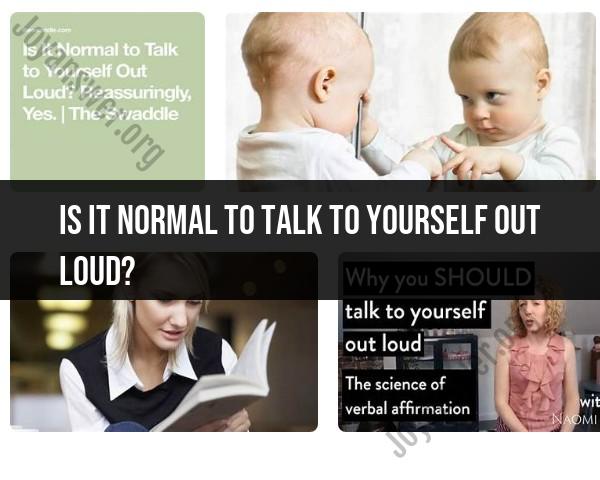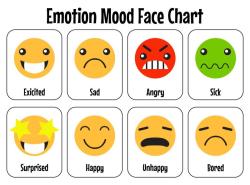Is it normal to talk to Yourself Out Loud?
Yes, it is entirely normal for people to talk to themselves out loud. This behavior is common and typically not a cause for concern. There are several reasons why people talk to themselves:
Problem Solving: Speaking out loud can help individuals think through complex problems or make decisions. Hearing their own thoughts can assist in organizing ideas and considering different perspectives.
Self-Encouragement: Talking to oneself can be a form of self-encouragement or motivation. By verbalizing positive affirmations or words of support, people can boost their confidence and resolve.
Planning and Organization: Many individuals find it helpful to talk through their plans, schedules, and to-do lists. Verbalizing tasks can aid in memory and ensure that nothing is forgotten.
Memory Aid: Repeating information out loud, such as when studying for an exam or learning something new, can enhance memory retention. The auditory aspect of hearing the information can reinforce learning.
Expression of Emotions: Talking to oneself can be a way to express emotions, particularly when someone is excited, frustrated, or upset. Verbalizing feelings can help individuals process and manage their emotional states.
Practicing Communication: Some people use self-talk as a form of practice for future conversations or presentations. It allows them to refine their language and arguments.
While talking to oneself is normal, there are some situations where excessive or persistent self-talk may be associated with mental health conditions like anxiety or obsessive-compulsive disorder. If self-talk becomes disruptive, distressing, or interferes with daily life, it may be worth consulting a mental health professional for guidance and support.
In most cases, though, talking to oneself out loud is a natural and functional aspect of human behavior. It serves various purposes and can be a helpful tool for thinking, organizing, and managing everyday life.
Is It Normal to Talk to Yourself Out Loud? A Self-Communication Guide
Talking to oneself out loud, also known as self-talk or private speech, is a common and normal human behavior. In fact, studies have shown that most people engage in self-talk on a regular basis.
There are many reasons why people talk to themselves out loud. Some people do it to help them think through problems, while others do it to motivate themselves or to stay on task. Some people also talk to themselves out loud as a way of expressing their emotions or to process difficult experiences.
Self-talk can be a helpful tool for self-regulation and self-improvement. When we talk to ourselves out loud, we are able to externalize our thoughts and feelings, which can help us to better understand and manage them. Self-talk can also be used to challenge negative thoughts and to develop more positive self-talk patterns.
The Fine Line Between Normal and Excessive Self-Talk
While self-talk is a normal human behavior, there is a fine line between normal and excessive self-talk. Excessive self-talk can be a sign of a mental health condition, such as schizophrenia or obsessive-compulsive disorder (OCD).
If you are concerned about your self-talk, it is important to talk to a doctor or mental health professional. They can help you to determine if your self-talk is normal or if it is a sign of a mental health condition.
Embracing Self-Dialogue as a Natural Human Behavior
For most people, self-talk is a healthy and normal part of life. If you find that self-talk is helpful for you, there is no need to be ashamed of it. In fact, embracing self-talk can be a way of connecting with your inner self and of gaining a deeper understanding of your own thoughts and feelings.
Cultural and Social Perspectives on Talking to Oneself
Cultural and social norms can influence how people view self-talk. In some cultures, self-talk is seen as a sign of madness or eccentricity. In other cultures, self-talk is seen as a normal and even beneficial way of communicating with oneself.
In Western cultures, self-talk is often seen as a sign of inner turmoil or insecurity. However, in many other cultures, self-talk is seen as a way of connecting with the spiritual realm or of gaining access to hidden knowledge.
Stories of Self-Discovery and Connection Through Self-Talk
Throughout history, many people have found self-talk to be a powerful tool for self-discovery and connection. For example, the ancient Greek philosopher Socrates was known for his practice of "self-examination," which involved engaging in dialogue with himself in order to gain a better understanding of his own thoughts and beliefs.
In more recent times, many writers and artists have spoken about the importance of self-talk in their creative process. For example, the American writer Maya Angelou once said, "I've learned that talking to myself is not a sign of madness, but a sign of having someone worth talking to."
If you are interested in learning more about self-talk, there are many resources available. You can find books, articles, and websites that offer guidance on how to use self-talk for self-improvement and personal growth.












